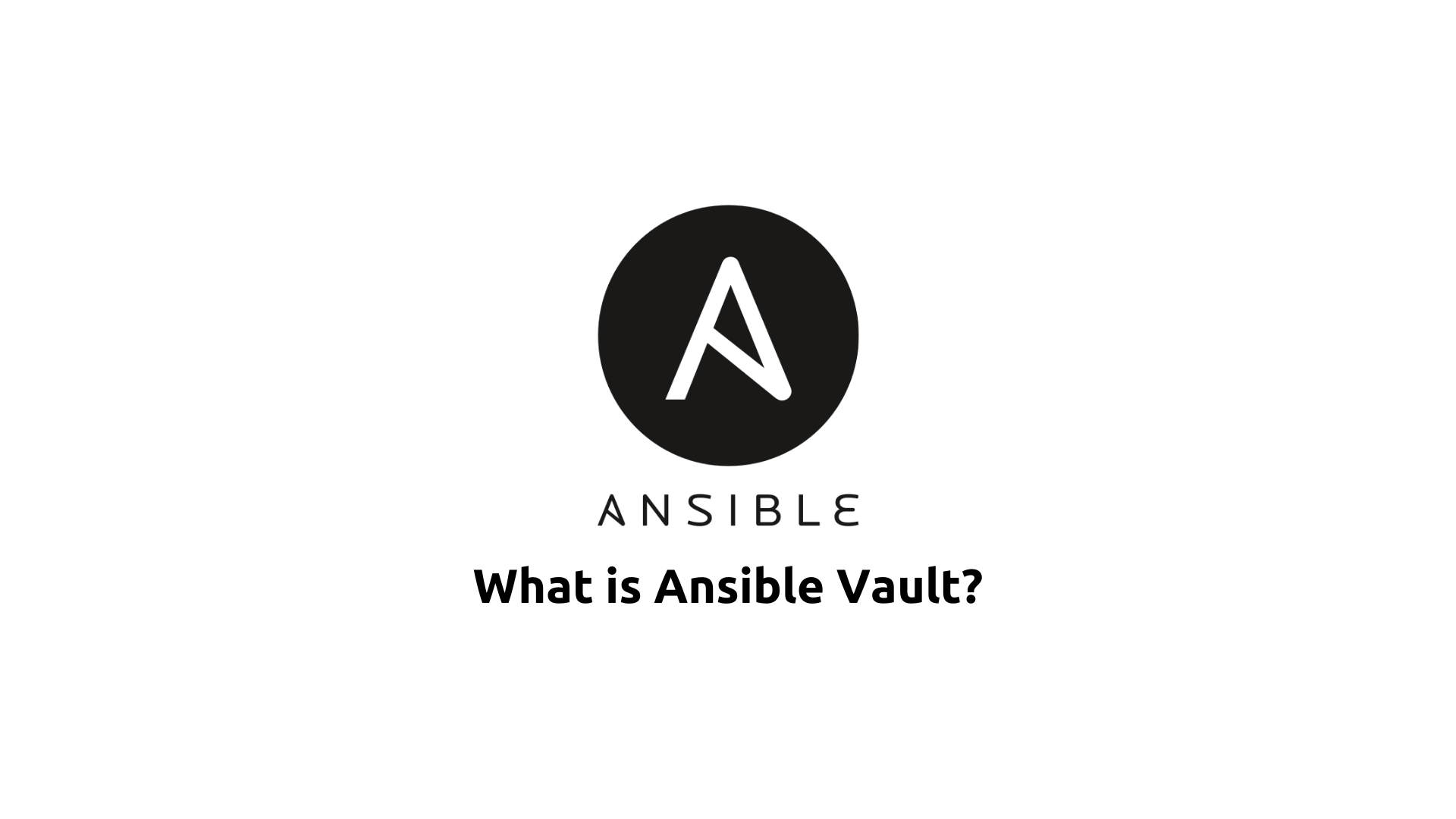What is Ansible Vault?
 Saurabh Adhau
Saurabh AdhauTable of contents

Introduction
Ansible Vault is a feature provided by Ansible that allows users to encrypt sensitive data such as passwords, API keys, and other secrets within Ansible playbooks, roles, and other files. This ensures that sensitive information is securely stored and transmitted, reducing the risk of unauthorized access or exposure. In this article, we'll delve into the concept of Ansible Vault, its purpose, and its role in securing sensitive data in Ansible automation.
Purpose of Ansible Vault
In many automation workflows, it's common to need to store sensitive information such as passwords, API tokens, and encryption keys. However, storing this information in plain text within Ansible playbooks or files poses a security risk, as it can be easily accessed by unauthorized users. Ansible Vault addresses this issue by providing a way to encrypt sensitive data, ensuring that it remains secure even if the files are compromised.
Key Features of Ansible Vault
Encryption: Ansible Vault uses strong encryption algorithms to encrypt sensitive data, ensuring that it cannot be accessed without the decryption key.
Integration: Ansible Vault seamlessly integrates with Ansible playbooks, roles, and other files, allowing users to encrypt and decrypt sensitive data within their automation workflows.
Flexibility: Ansible Vault supports various encryption methods and can be used to encrypt entire files or specific variables within files, providing flexibility in securing sensitive information.
Benefits of Using Ansible Vault
Enhanced Security: By encrypting sensitive data, Ansible Vault helps mitigate the risk of unauthorized access or exposure, enhancing the overall security of Ansible automation workflows.
Compliance: Ansible Vault aids in achieving compliance with security regulations and best practices by ensuring that sensitive data is stored and transmitted securely.
Simplified Management: Ansible Vault simplifies the management of sensitive information by providing a centralized and secure way to store encryption keys and manage encrypted data.
Conclusion
Ansible Vault is a valuable feature of Ansible that addresses the need for secure storage and transmission of sensitive data in automation workflows. By encrypting sensitive information within playbooks, roles, and other files, Ansible Vault enhances the security of Ansible automation and helps organizations maintain compliance with security standards and regulations.
Subscribe to my newsletter
Read articles from Saurabh Adhau directly inside your inbox. Subscribe to the newsletter, and don't miss out.
Written by

Saurabh Adhau
Saurabh Adhau
As a DevOps Engineer, I thrive in the cloud and command a vast arsenal of tools and technologies: ☁️ AWS and Azure Cloud: Where the sky is the limit, I ensure applications soar. 🔨 DevOps Toolbelt: Git, GitHub, GitLab – I master them all for smooth development workflows. 🧱 Infrastructure as Code: Terraform and Ansible sculpt infrastructure like a masterpiece. 🐳 Containerization: With Docker, I package applications for effortless deployment. 🚀 Orchestration: Kubernetes conducts my application symphonies. 🌐 Web Servers: Nginx and Apache, my trusted gatekeepers of the web.